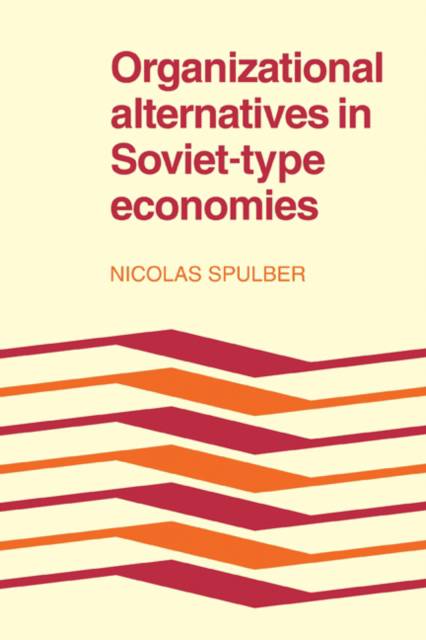
- Afhalen na 1 uur in een winkel met voorraad
- Gratis thuislevering in België vanaf € 30
- Ruim aanbod met 7 miljoen producten
- Afhalen na 1 uur in een winkel met voorraad
- Gratis thuislevering in België vanaf € 30
- Ruim aanbod met 7 miljoen producten
Zoeken
€ 60,95
+ 121 punten
Uitvoering
Omschrijving
In this volume, which was originally published in 1979, an essay of analysis prefaces a collection of translated papers from Eastern Europe. The juxtaposition of analysis and original documents from Eastern European authorities (both revered there and disgraced) enables the reader to join in the experience of interpretation. The essay (Part I) provides an analysis of the mechanisms of Soviet-type economies. It concentrates on four issues: decision-making processes; the limits upon the choices made; practical implementation of the choices; and the objectives implied by them. This ends with an explanation of the relatively scant application of economic principles to the operation of this type of economic system. Part II is a reader consisting of appropriately chosen original texts from Eastern European sources grouped into sections on administration, resource allocation, planning and incentives. The issues are examined in relation to the special conditions which brought them to a head.
Specificaties
Betrokkenen
- Auteur(s):
- Uitgeverij:
Inhoud
- Aantal bladzijden:
- 302
- Taal:
- Engels
Eigenschappen
- Productcode (EAN):
- 9780521179966
- Verschijningsdatum:
- 17/02/2011
- Uitvoering:
- Paperback
- Formaat:
- Trade paperback (VS)
- Afmetingen:
- 152 mm x 229 mm
- Gewicht:
- 444 g

Alleen bij Standaard Boekhandel
+ 121 punten op je klantenkaart van Standaard Boekhandel
Beoordelingen
We publiceren alleen reviews die voldoen aan de voorwaarden voor reviews. Bekijk onze voorwaarden voor reviews.











